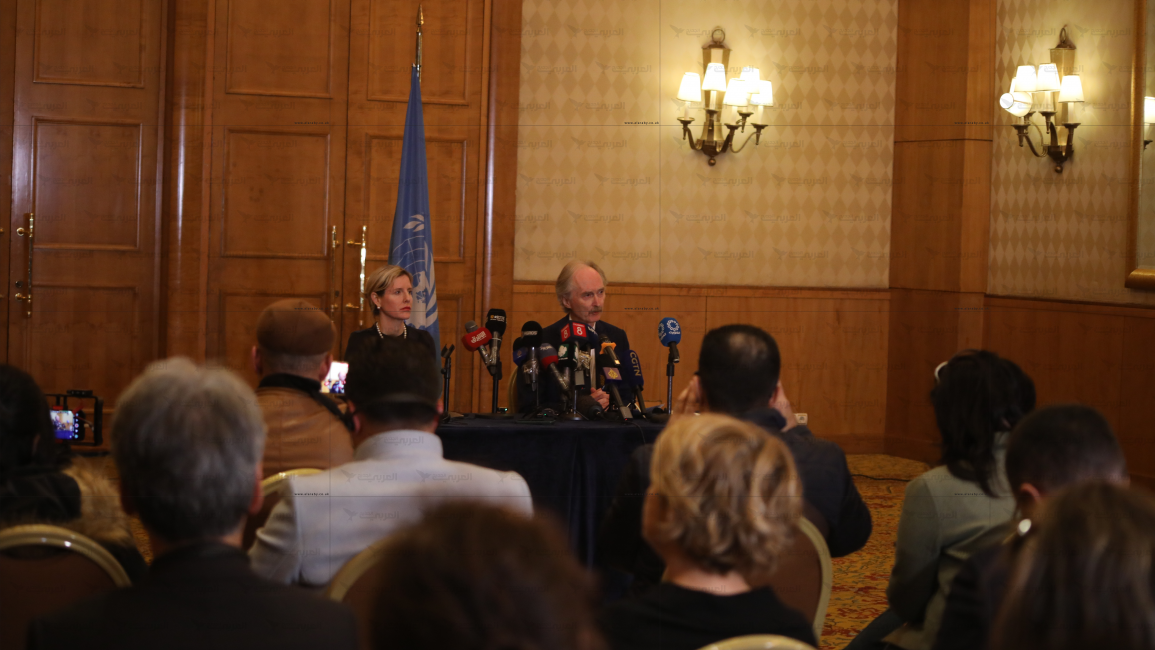The United Nations envoy to Syria, Geir Pedersen, has urged the international community to reconsider the sanctions imposed on the former regime. Meanwhile, Brussels has called for easing sanctions on Damascus. Speaking at a press conference in Damascus on Wednesday, Pedersen emphasized that certain principles of UN Resolution 2254 “remain valid” and rejected Israel’s pretexts for occupying Syrian territories. He highlighted the international community’s willingness to support Syria and stressed the importance of reevaluating sanctions on the former regime.
Pedersen reiterated the significance of safeguarding Syria’s sovereignty and territorial integrity, along with the necessity of a comprehensive political process facilitated by the United Nations. He underlined the importance of thorough preparation for the upcoming National Dialogue Conference in Damascus. The envoy welcomed assurances from Ahmad al-Sharaa, head of the administration in Damascus, regarding a “comprehensive transition process.” Pedersen also emphasized that definitions of national dialogue must reflect inclusivity, noting, “Syrians themselves can articulate the difference between inclusiveness and exclusivity.” He stressed the need for guarantees to protect all Syrians and involve them in shaping the country’s future.
The envoy discussed transitional justice with al-Sharaa and urged the international community to support Syria in this area. He expressed approval of the caretaker government’s commitment to rejecting reprisals, adding, “The key to stability is forming a unified army, which requires careful management.” Pedersen outlined seven key points discussed during his meeting with al-Sharaa:
- Integrating armed factions into a national army
- Addressing opportunities in northeastern Syria
- Ensuring protection for all Syrians
- Facilitating political transition and transitional justice
- Revitalizing the economic sphere
- Supporting reconstruction efforts
- Resolving the Israeli occupation of Syrian territories
Pedersen condemned Israel’s occupation of Syrian territory as “entirely unacceptable” and lacking any justification. He noted, “This is only the second month of the new government in Syria following 14 years of conflict and one-man rule. Any government will face significant challenges.”
Brussels Hopes to Ease Sanctions on Syria
European Union foreign policy chief Kaija Callas expressed optimism on Wednesday about reaching a political agreement to ease sanctions on Syria during the upcoming EU foreign ministers’ meeting on January 27 in Brussels.
European officials have begun reassessing their approach to Syria following the ousting of former President Bashar al-Assad by Syrian opposition forces led by Hayat Tahrir al-Sham. While some European capitals advocate for a swift suspension of economic sanctions to demonstrate support for the transition in Damascus, others emphasize maintaining leverage in future relations with the new Syrian authorities, even as some sanctions are relaxed.
“We are prepared to adopt a gradual approach while remaining open to alternative strategies,” Callas told Reuters. She cautioned, “If developments take a negative turn, we will be ready to reverse course.”
Six EU member states recently urged the bloc to temporarily suspend sanctions on Syria in specific sectors, including transportation, energy, and banking. Current EU sanctions encompass a ban on Syrian oil imports and the freezing of Syrian central bank assets in Europe.
This article was translated and edited by The Syrian Observer. The Syrian Observer has not verified the content of this story. Responsibility for the information and views set out in this article lies entirely with the author.


